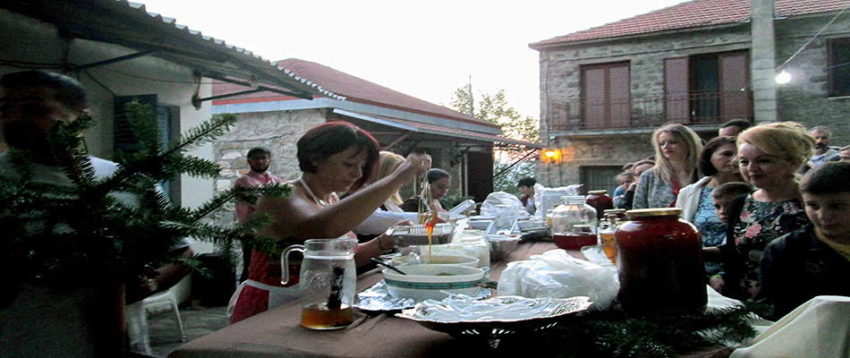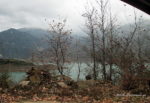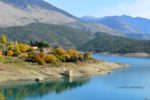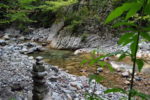The stone square with the old plane-tree and the traditional Pandopoleio (a greek institution-a cafe-grocery– wine shop– and soul of the village all rolled into one) is the typical image of the mountain villages of Greece today but which is becoming more scarce year by year.
We discovered one such traditional café in Krioneria village in the heart of Nafpaktia mountains, a village tucked away in the trees with fountains and springs on the way to Evinolimni (Evinos lake), and here we tasted the excellent local honey at the annual Honey and Walnut festival.
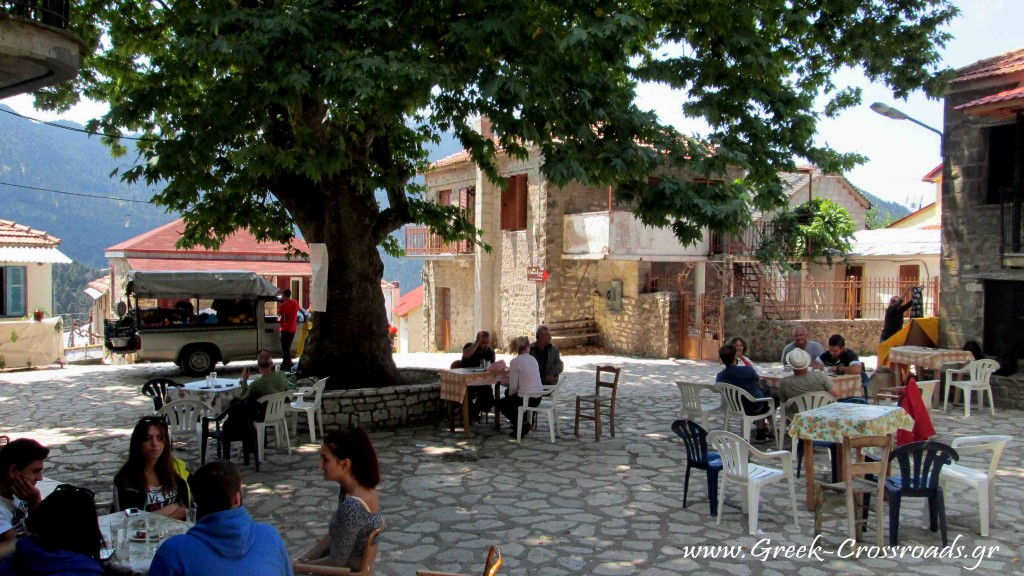
So, if you have not visited Mrs. Koula cafe in Krioneria village or you have not tried the local honey, then you have not really seen anything of the mountainous region of Nafpaktia or it’s villages and people.
The history of the traditional cafe
The café of Koula and Nikos Lyberis is located in the village square and you realise that it has its own living history unfolding as soon as you go in…
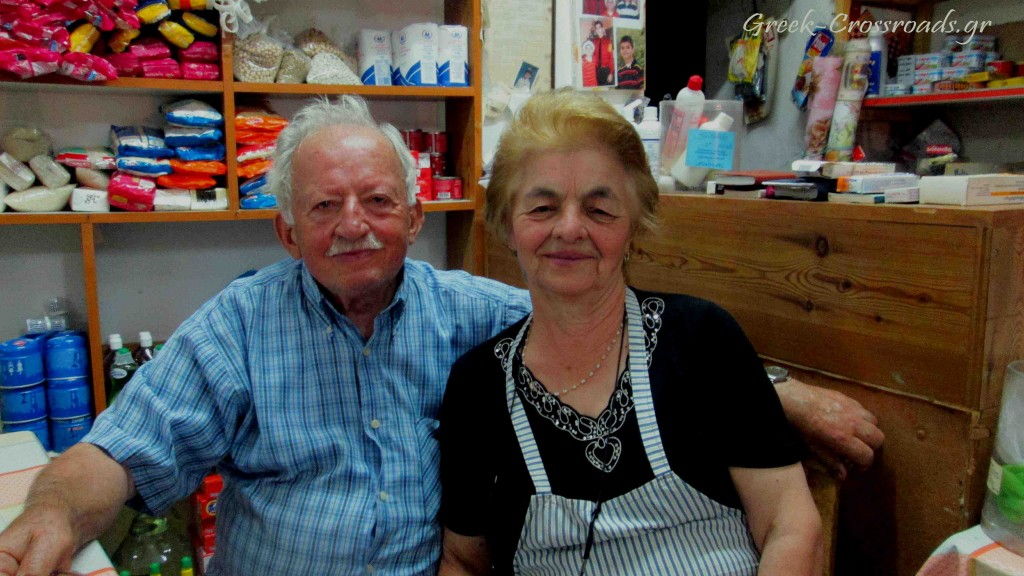
Next to the shelves full of cans and stationery, an entire wall is covered with a collage of historical black and white photographs that immortalize the struggle, toil and joys of a lifetime of its owners from 1939 to today. One thing that stands out is the honorary praise that the villagers have bestowed on these important permanent village residents as a sign of their appreciation and gratitude for the being the focal point of the village.
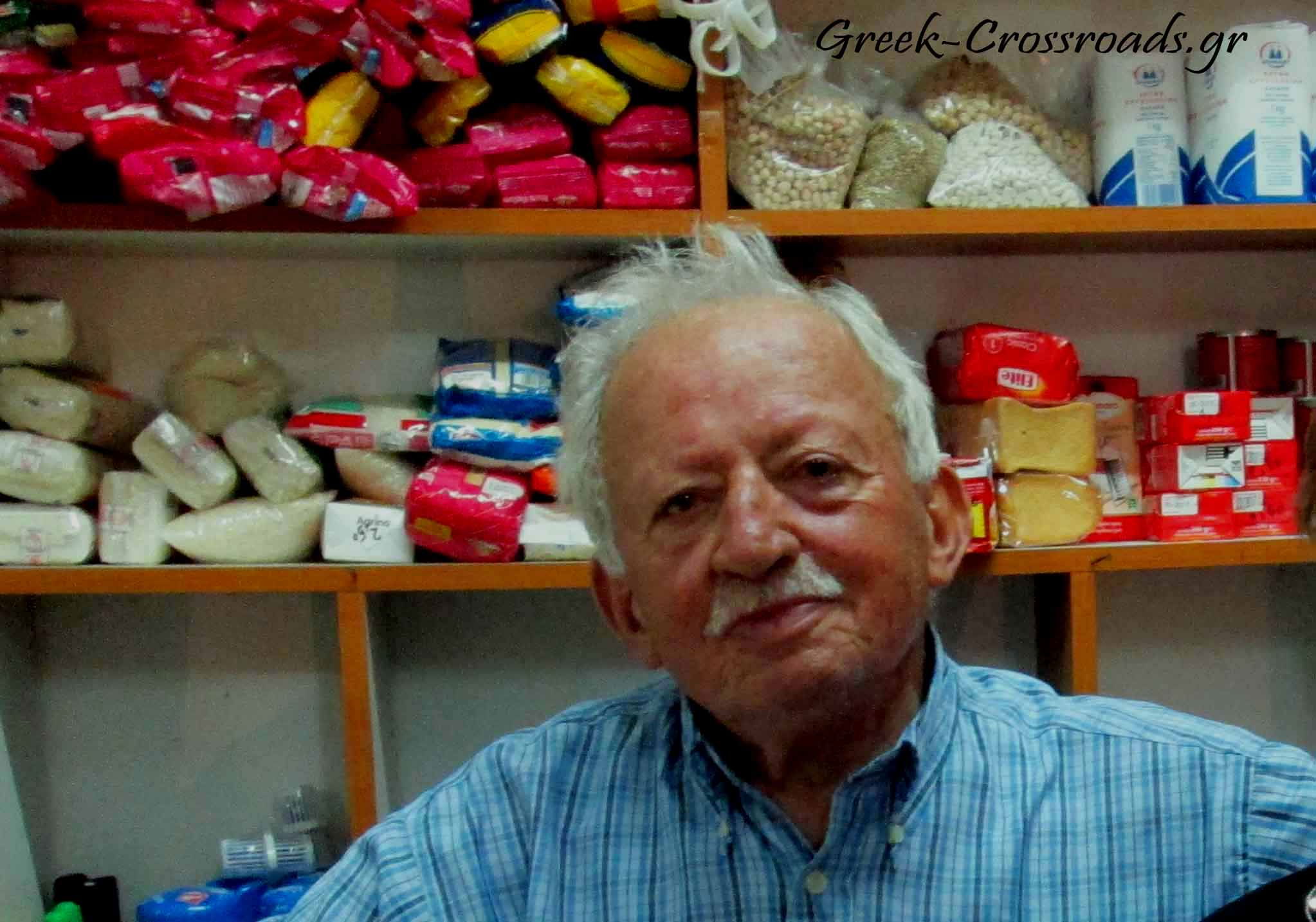
Nikos Lymperis was born and bred in Krioneria. He is a farmer, grocer and a self taught chanter (someone who sings in the greek orthodox church). Resident again from the early 50s until today , he was among the first who returned to the village after the War in 1948. Then the Greek countryside was devastated by anguish and warfare. Those years were bitter and difficult ones that followed the end of the Second World War.
Mr. Lymperis opened the ground floor of his parent’s house- a corner stone house on the square of the Kryoneria village and made it a cafe with a grocery and grill. At night, in the warmth of the little cafe he played the violin and sung folk songs to keep alive the folk traditions. For years he was secretary of the Krioneria council and offered a lot to the community. The collage on the cafe wall is made up of clippings of local newspapers that record the forgotten beauty of another Greece with it’s gentle, genuine and human face.
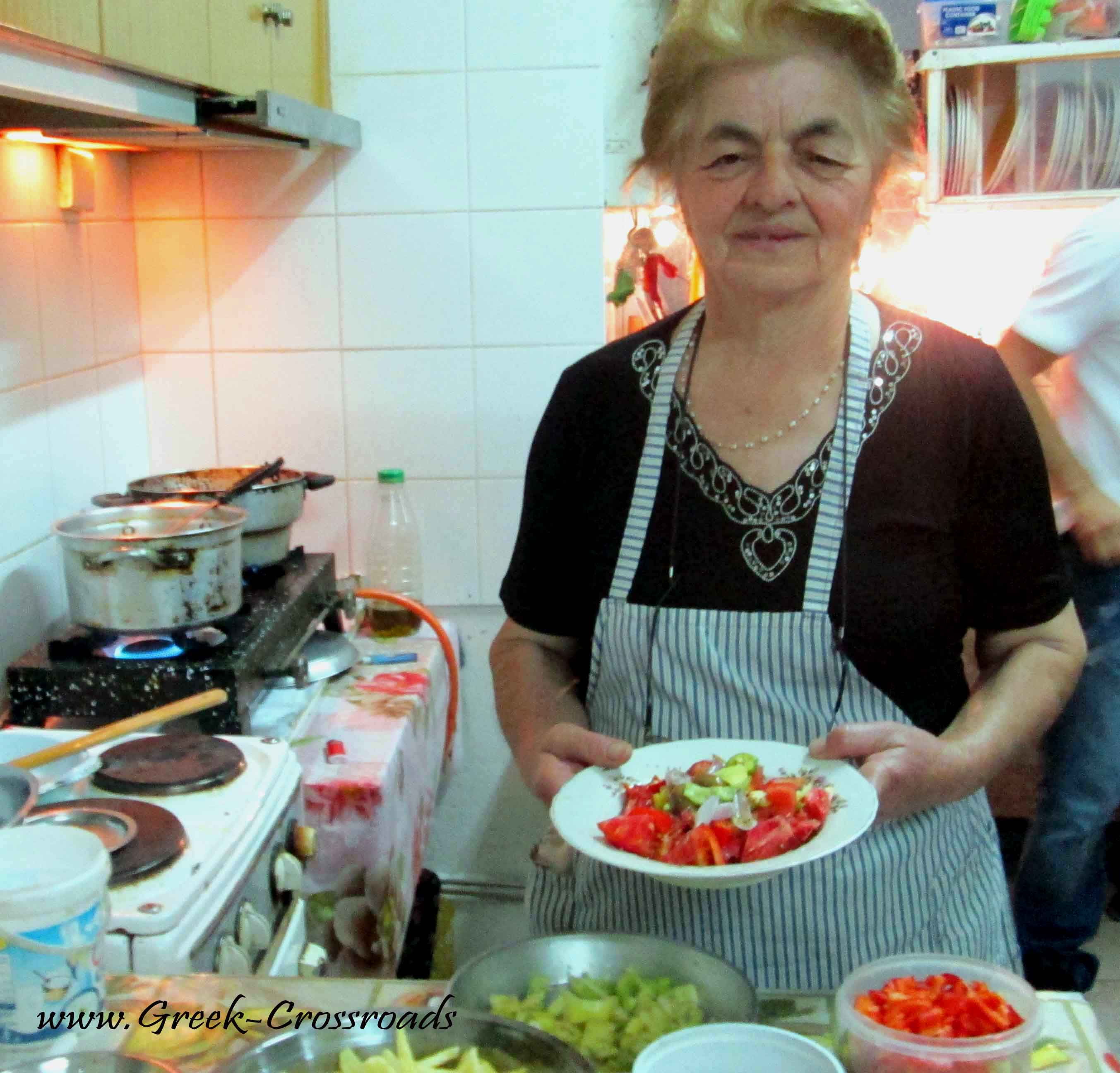
All these years alongside Nikos is his tireless wife Mrs. Koula. A welcoming and wonderfully chirpy woman who cooks exceptional dishes and makes amazing sweet walnut. We asked for the recipe and she described step by step how it is made.
The recipe -believe me- is real nuisance! Why ? Because, not only does it need days to soak the nuts in water to filter out to the bitterness of the green rind (the procedure requires frequent water changes) but also because the juice of nuts stains the hands black and … these stains do not come out! It is a very difficult job making the sweet walnut and its syrup, so it ‘s better to try it here rather than make it yourself.
In the cozy café of Krioneria village you will find a warm corner on cold nights and enjoy cool afternoon rests beneath the plane tree in the summer months . And if someone does not appear to serve you straight away you have to shout ” Koulaaa …”! As the sign says!
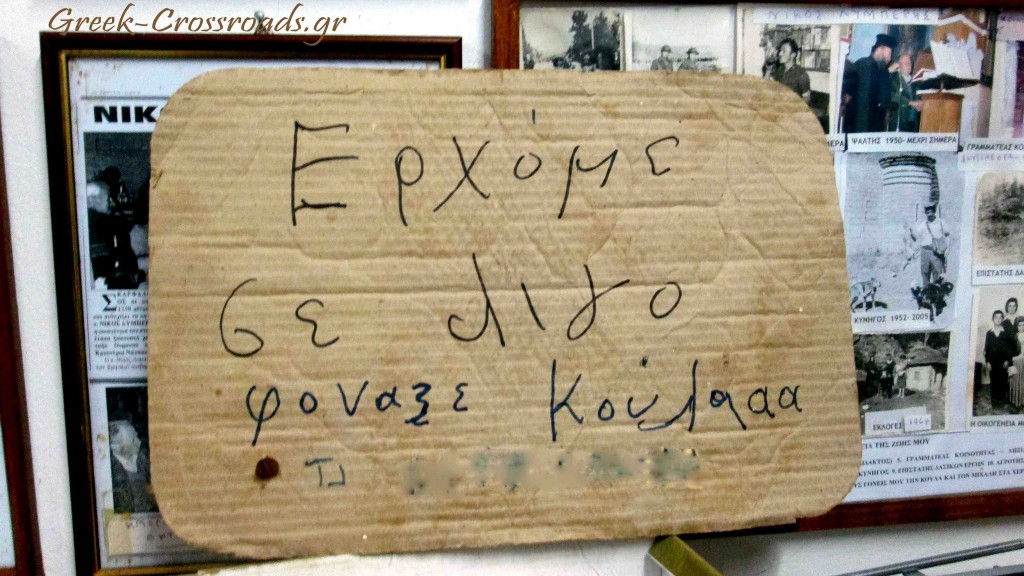
The Festival of Honey and Walnut in Krioneria Nafpaktias
This village tradition remains alive today. Every August in Krioneria the Festival of Honey and Walnut is organized in the village square. It is a day of joy as friends and families get together in the cobbled square with the plane- tree and the traditional café is busy all morning with the preparations.
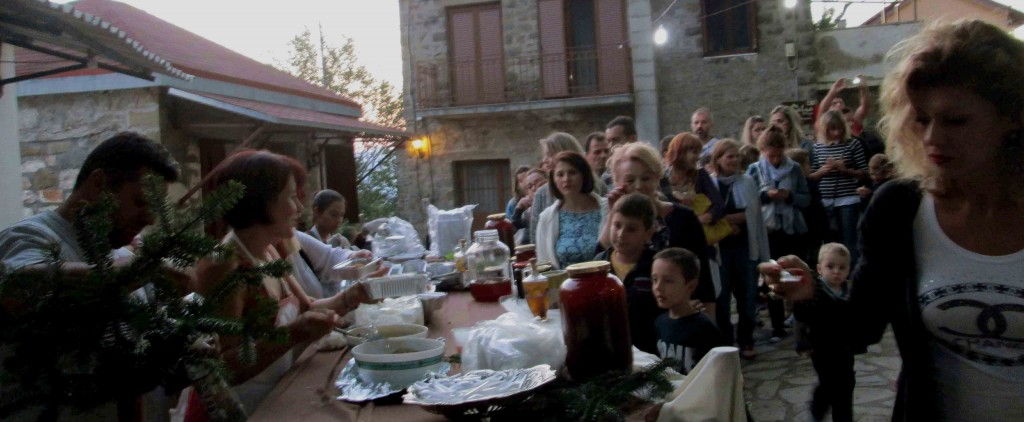
A long buffet table is set up… dripping honey from local producers. Pastries with yogurt and honeyed nuts, honeyed cake , hot donuts with honey and walnuts, walnut sweet treats are offered to all, locals and visitors alike.
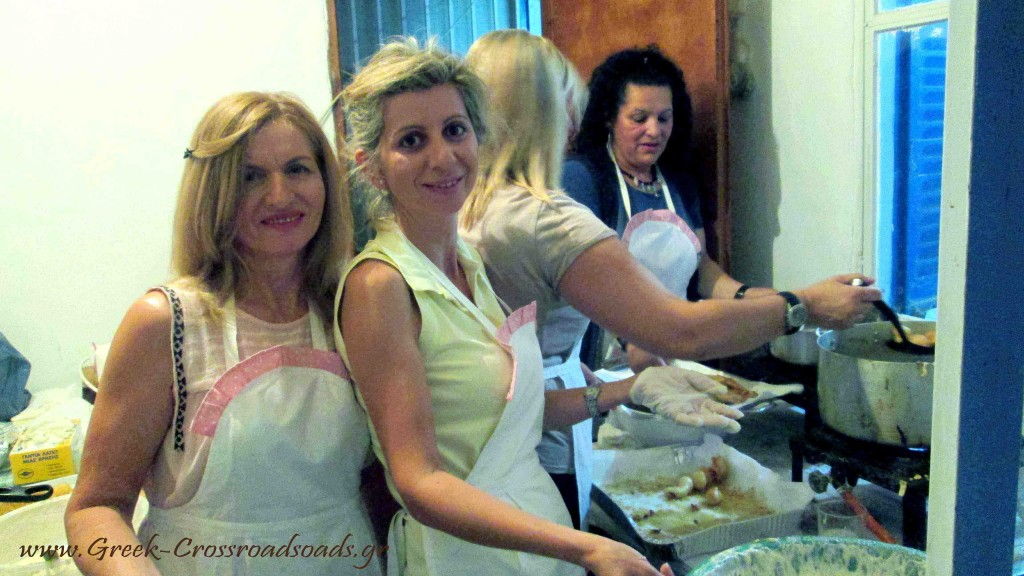
Side by side the Council and the young women of the village set up the kitchen and work tirelessly until late afternoon making countless donuts for the whole world. These girls open the festival with a fun dance and the feast begins.
The tsipouro and ouzo of course flows abundantly and the Festival keeps going until dawn….for whoever has the stamina… with traditional music and Greek folk songs.




